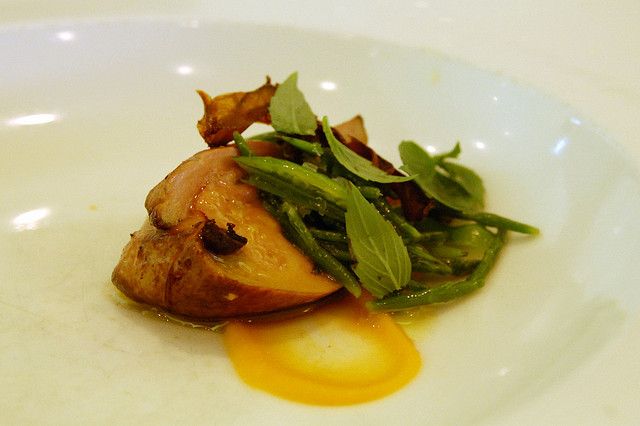Foie Fights: Leggo My Liver
Popular on Food52
4 Comments
ATG117
June 7, 2012
I'm a vegetarian, but I have no problem with people eating ethically raised meat. That said, I do not understand how eating foie can be defended. If anyone has a good argument in support or a defense of the way it is produced, I'd love to hear it. I think I read somewhere that Thomes Keller said his foie came from a trusted source and that the geese were raised well, but that, to me, makes little sense if we accept that the geese need to be force fed.
Katy K.
June 7, 2012
Krusher, I used to eat foie gras, but now I find it ethically questionable as well. It's a shame, because it is so delicious, but the way it's produced is (in my opinion) cruel... which is why I was so excited to hear about a Spanish chef who was producing foie gras without hurting (or even caging) his birds. I just hope that becomes standard, someday....
krusher
June 7, 2012
I actually couldn't bring myself to eat foie gras when I was in Gascony in September last year for ethical reasons. Recently I have been diagnosed with an enlarged liver. Don't let anyone tell you it is not unpleasant. It hurts. It is uncomfortable. When I compare the size of duck foie gras livers to the size of healthy duck livers on sale at my local butcher, the difference is obscene.
TXExpatInBKK
June 7, 2012
Do they have to be the enlarged, unethical ones to be tasty? Or do the healthy duck livers at your butchers taste just as good? I've never bought them before but have a recipe I want to try and I'm wondering if I can just use the ones from happy ducks.


See what other Food52 readers are saying.